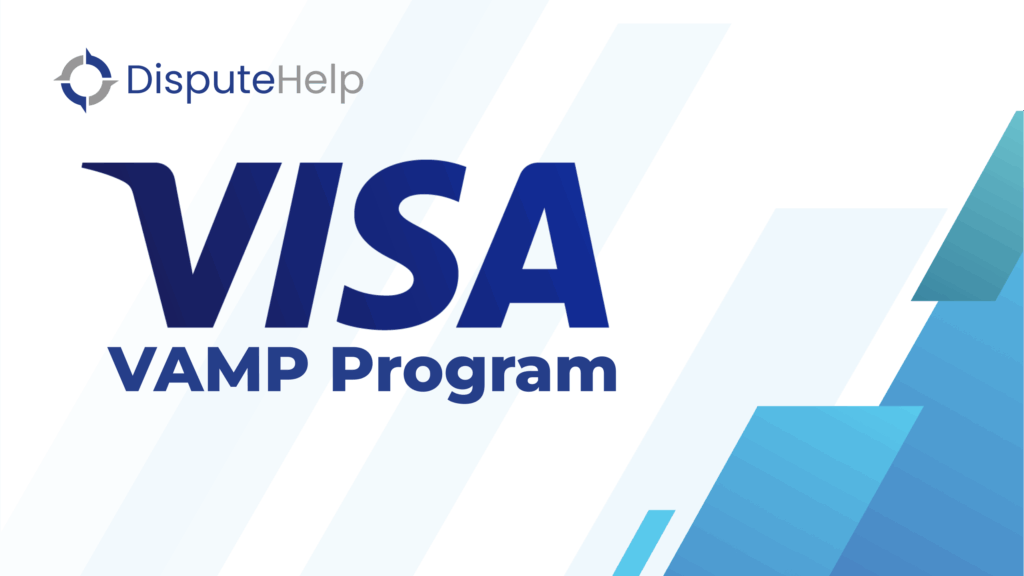Modernized Dispute Management
Visa has modernized its approach to acquirer and merchant risk management. As of April 1, 2025, Visa’s Fraud Monitoring (VFMP) and Dispute Monitoring (VDMP) programs were sunset and replaced with a unified system: VAMP.
For MSPs, this shift marks a heightened emphasis on early intervention and scalable risk controls. One of the most powerful tools to help meet these new expectations is Visa Rapid Dispute Resolution (RDR)—an automated solution that can resolve disputes before they mature into costly chargebacks.
What Is Visa RDR (Rapid Dispute Resolution)?
Visa RDR is a pre-dispute tool that automatically prevents chargebacks by issuing refunds in real time, based on rules configured by the merchant.
Key Features:
- Real-time dispute interception
- Merchant-defined resolution rules
- Automatic refund issuance – no manual effort required
- No traditional chargeback filing
- Dispute never counts toward a merchant’s chargeback ratio
Rapid Dispute Resolution is a Visa service that automatically resolves select disputes by issuing a refund before the dispute enters the chargeback process—preventing the chargeback entirely.
Visa’s Shift from VFMP/VDMP to VAMP
Visa’s previous monitoring programs (VFMP and VDMP) separately tracked fraud and customer disputes. But this created redundancy and lacked portfolio-level risk insights.
VAMP, introduced in April 2025, now consolidates both fraud and dispute activity, monitoring at the acquirer level and emphasizing earlier risk intervention. Noncompliance can result in:
- Financial penalties
- Higher scrutiny from Visa
- Merchant account termination risk
VAMP combines the monitoring functions of VFMP and VDMP and focuses on acquirer accountability. Acquirers must now show systemic efforts to prevent chargebacks and fraud before thresholds are breached. Try our new VAMP Calculator now to ensure compliance.
UPDATE: The Visa Acquirer Monitoring Program (VAMP) advisory period runs from April 1st, 2025, to September 30th, 2025. During this time, Visa will provide advisory notifications to acquirers and merchants who exceed the new VAMP thresholds, but no penalties will be imposed. This period allows businesses time to adjust their risk management strategies and comply with the new program before enforcement begins on October 1, 2025.
How RDR Helps MSPs Meet VAMP Expectations
Visa’s VAMP thresholds remain strict, and dispute counts—including fraud—directly affect portfolio compliance.
Benefits of RDR under VAMP:
- Reduces total dispute volume, improving overall ratios
- Decreases manual workload for dispute resolution teams
- Enhances issuer-merchant collaboration and brand trust
- Deepen customer loyalty by providing a critical value-added service
Instead of traditional chargeback representment, where costs are high and outcomes uncertain, RDR resolves disputes cleanly—often before a merchant is even aware the cardholder had a problem.
How to Enable RDR for Your Merchant Portfolio
Implementing RDR involves several steps, but can be deployed portfolio-wide.
Implementation Steps:
- Enroll in the service through Verifi or a third-party facilitator
- Configure resolution rules (by reason code, amount, etc.)
- Monitor success metrics and adjust as needed
Why MSPs Should Prioritize RDR
Merchants now expect modern, automated tools to reduce chargebacks and preserve their processing privileges. MSPs who don’t offer RDR—or wait too long to deploy it—risk:
- Higher portfolio-level dispute ratios
- Merchant attrition due to unmanaged risk
- Difficulty meeting Visa’s evolving compliance standards
Conversely, offering RDR positions MSPs as proactive partners who protect merchant health and maximize revenue continuity.
Feature Comparison
| Tool | Proactive | Prevents Chargebacks | Improves VAMP Ratios |
|---|---|---|---|
| Chargeback Alerts | Yes | If refund is issued in time | If dispute is avoided |
| Visa Order Insight | Yes | If cardholder recognizes transaction | If dispute is avoided |
| Visa RDR (Rapid Dispute Resolution) | Yes | Yes | Expected |
What Are Chargeback Alerts?
Chargeback alerts refer to pre-dispute notifications delivered by Verifi (Visa) or Ethoca (Mastercard). These alerts provide merchants with a brief opportunity—usually 24 to 48 hours—to issue a refund or resolve the issue before it becomes a formal chargeback. While useful, especially so if layered for optimal protection, alerts are reactive and do not guarantee chargeback prevention. If no action is taken, the chargeback proceeds and counts toward dispute ratios.
Next Steps
Visa RDR is more than just a refund tool—it’s a strategic asset for MSPs facing stricter oversight under VAMP. By resolving disputes automatically and preserving portfolio health, RDR enables compliance, merchant satisfaction, and operational efficiency.
If you’d like help setting up Visa Rapid Dispute Resolution across your merchant portfolio—or exploring how RDR fits into your broader dispute management strategy—contact our team of chargeback management experts today. We can help ensure your merchants stay protected and your acquirer relationship remains in good standing.
FAQs: How Visa Rapid Dispute Resolution Helps MSPs Manage VAMP Compliance
What is Visa RDR and how does it work?
Visa RDR is an automated tool that resolves disputes before they become chargebacks by issuing merchant-approved refunds in real time.
How does RDR help with Visa’s VAMP compliance requirements?
At present, Rapid Dispute Resolution (RDR) does not guarantee a direct impact on a processor’s standing under Visa’s Acquirer Monitoring Program (VAMP). The relationship between RDR and VAMP thresholds remains in flux as Visa continues to refine the program. However, upcoming policy updates are expected to formally recognize the role of RDR in reducing dispute ratios—potentially offering measurable compliance benefits in the near future.
Is RDR a replacement for other chargeback alerts?
No, RDR is complementary. Unlike solutions like Ethoca Alerts or Verifi CDRN, RDR automatically prevents disputes from becoming chargebacks.
What types of disputes can be resolved via RDR?
Visa RDR only works for Visa transactions. Furthermore, only eligible fraud and customer dissatisfaction disputes, based on configurable merchant rules and issuer participation, will be resolved.
What’s the cost of RDR compared to chargebacks?
RDR fees are typically lower than chargeback and representment fees, with the added benefit of protecting merchant and acquirer metrics.
How can MSPs enable RDR for their merchants?
MSPs can enroll through Verifi or partners, configure resolution rules, and integrate via API or dashboard tools to start resolving disputes automatically.
Why is RDR especially important now?
With the launch of VAMP, Visa now holds acquirers accountable for fraud and chargeback activity at a portfolio level—making pre-dispute tools like RDR essential.



